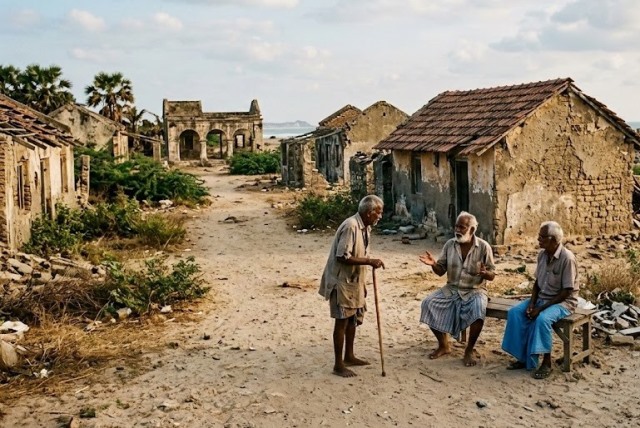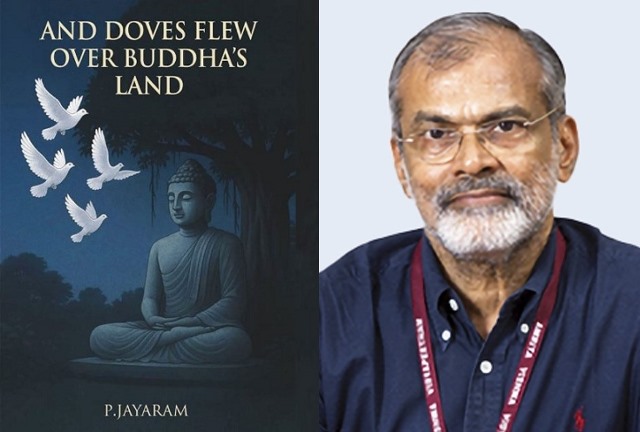Why Foreign Policy Is Never An Electoral Issue?
For a nation which sees itself as a future global power, it is surprising that foreign policy is never a major talking point in the election season. What goes as foreign policy is a national security narrative focused mainly on Pakistan, terrorism and the need for a strong leader like Narendra Modi to keep India safe.
This buys into the domestic tirade against an “unpatriotic opposition” which plays to Pakistan’s tune. Indeed, this is not the first time that Pakistan comes into play during election season. The “Mia Musharraf” jibe at the Congress party was after all popularised by Narendra Modi in 2014. However, the mainstay of BJP campaign theme that year was not Pakistan, but development and good governance.
Having failed to deliver credibly on any of its poll promises made in 2014, the BJP has pounced on nationalism as the recipe to return to power. The Pulwama terror attack which killed 42 CRPF men in South Kashmir could not have come at a better time. The suicide attack outraged the country. India’s bombing of the Jaish-e Mohammed centre at Balakot gave a fillip to the BJP’s strong leader narrative. The IAF hero who was captured when his plane was shot down over PoK and his subsequent return home, enthralled the urban Indians glued before their television sets to soak up every bit of the action details.
Much of this ultra-nationalism passes off as a foreign policy achievement for the BJP in its election campaign now, with Prime Minister Narendra Modi himself declaring that India had got inside the enemy’s territory and hit hard. While there is still debate on the amount of losses incurred on Pakistan, the super efficient BJP election machine has ensured that all this is of no consequence. Modi’s connect with the voters is perfect. Anyone questioning the state narrative is anti-national. The opposition dare not raise any doubts for fear of being dubbed as enemies of India.
While foreign policy is rarely an electoral issue for most developing countries, the relations with neighbouring countries often raised to bolster own and vilify the opponents. South Asian nations are a case in point. For a while in Bangaldesh, India was used by the Bangladesh Nationalist Party of Khaled Zia much in the way Pakistan is being by the BJP. Sheikh Hasina was constantly attacked for being an Indian stooge. In Nepal’s last elections, the fact that Prime Minister Oli took on India for its blockade of Nepal in 2015 played a significant part in winning elections for the Communists.
India’s foreign policy has seen a continuation of the Nehruvian vision by successive governments. Even though critics have torn into Nehru’s non alignment movement, we have continued with our lip service to it. The Congress manifesto this year “affirms its firm belief in the continued relevance of the policy of friendship, peaceful co-existence, non-alignment, independence of thought and action, and increased bilateral engagement in its relations with other countries of the world” reads the party’s manifesto in response to a muscular policy allegedly adopted by the Modi government.
The one new idea offered by the Congress is establishment of a National Council on Foreign Policy, where members of the Cabinet Committee on Security would me domain experts to advise the government from time to time. The rest is pretty much the same. There is not much difference between the policies of the BJP and Congress on external affairs.
The biggest tactical shift in India’s foreign policy was brought in by the Manmohan Singh government in 2006 by signing the India-US civil nuclear deal. But the UPA government hesitated to take this either to its logical conclusion or posit it as an achievement before the electorate. The ground for changing equation with the US was set in motion by the Atal Bihari Vajpayee with the Strobe Talbot-Jaswant Singh dialogue. Prime Minister Narendra Modi has further enhanced the Indo-US partnership by signing three of the four foundation defence agreements which would help the Indian and US troops to operate together. But do such important strategic policy decision make it to the poll campaign banners? Hardly.
In the Indian foreign policy and security establishment, as well as people psyche, there is concern about moving too close to the US. So while Delhi is cautiously moving towards the US camp, it is hesitant to take the final leap. We have little idea of either the BJP or the Congress take on this. The US is keen for India to jointly patrol the South China Sea, in a show of cooperative action against Chinese assertiveness in the region. Yet like the previous UPA government, the NDA has also so far not agreed to it for fear of escalating tension with its giant Asian neighbour.
So far both the Congress and the BJP has continued with the policy of going ahead with co operation with China despite the boundary issue not having being resolved. All this is pragmatic but now with the Belt and Road Initiative of President Xi Jinping, the question is should Delhi continue to stay away? The answers are not simple but need to be debated in public. Should India go ahead and take part in certain projects which would enhance connectivitiy or oppose the China-Pakistan Economic Corridor? Does India have a realistic chance of getting back POK? All of India’s neighbours except Bhutan, have signed in. Italy has too. That should be an eye opener. The foreign policy debate in India should have been much more robust. Can India continue to ignore SAARC? How long will this boycott continue? But on every question on SAARC, Pakistan props up and the debate goes nowhere till relations improve. We need Narendra Modi and Rahul Gandhi to talk all this though.
There are reasons why foreign policy is not a part of the election discourse. In a country still struggling to lift millions of people from grinding poverty, unemployment, caste and religious divisions, foreign policy does not resonate among the general voters. It is a subject confined to strategic experts and academic and power circles. India is not an advanced democracy like either Britain or the US or France. It is a democracy in the sense it holds national and state elections every five years and very little else. Questions of human rights, transparency and seldom raised except by intellectuals and activists. It does not concern the general public.
It would be of some concern to people living in border villages along the LoC who are suffering Pakistani artillery in Kashmir or Punjab. In Tripura, Meghalaya, Nagaland and Manipur and Assam, the one point agenda is to detect and deport the alleged Bangladeshi migrants who have entered the north east. All together these states carry less than 40 Lok Sabha seats in a 543-member of the Lower House. For the states that carry the lion’s share of constituencies, like Uttar Pradesh, Maharashtra, or Madhya Pradesh or Andhra Pradesh, where villagers struggle to make ends meet, does India’s foreign policy really impact their lives?
Thus, it will be quite some time before foreign policy discourses become part of India’s election debate. Till that happens, the electoral debate will circle around either ‘jumlas’ or basic livelihood issues.



